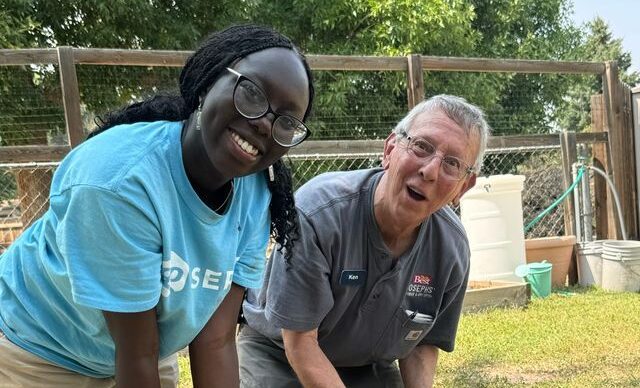By Denise Posie
Do you know one of the best ways to get to know individuals from backgrounds different than our own in a deeper way? The answer is a shared ministry project. Some people think diversity is knowing each other’s names, eating a meal, and singing songs together, but it’s more than that. True diversity can be achieved through serving with a church or Christian organization from a different cultural background or faith tradition, and it stretches everybody outside of their comfort zone.
By using C.A.R.E., a practice with four principles for creating community for connecting with individuals we don’t know well or strangers, we can bridge cultural gaps. We can remove personal barriers, become comfortable and confident, empathize with someone else’s experiences, discover new things about God, others, and ourselves, and increase our capacity to embrace diverse individuals by using an effective practice for building relationships.
God created us to be relational beings, with diverse individuals regardless of age, gender, ethnicity, culture, school and church affiliations, neighborhoods, experiences, and other natural ways to gather. We tend to gravitate towards those who look like us or share common interests with us. Interestingly, we don’t really know what we have in common because we don’t know each other.
Everyone begins their shared ministry project with the knowledge that every person has something important to contribute. Everyone belongs and is committed to getting to know those who might be different than themselves by being stretched outside their comfort zone. Sometimes, conversations can be awkward. Fortunately, God’s Word can build our confidence and help with our fears when we careabout ourselves and others in these cases.
The prominent civil rights leader, the Rev. Dr. Martin Luther King, Jr., had something to say about people’s fear of each other. “…They fear each other because they don’t know each other, and they don’t know each other because they don’t communicate with each other, and they don’t communicate with each other because they are separated from each other.”
C.A.R.E. offers some Biblical principles emphasizing how we can serve others well based on Ephesians 4:32; Isaiah 6:1-8; Colossians 3:12; and Luke 5:12-13 to help in bringing about a life-giving and life-changing experience.
With the Holy Spirit’s help and prayer, participants will commit to being:
Compassionate- offering kindness in words and deeds to others.
Available– having a heart ready to serve others for the sake of Christ.
Receptive – receiving from others. It takes humility and openness to accept someone’s truth when we haven’t had the same experience.
Empathetic – being sensitive to someone’s situation or story by not looking down on them, even when their life differs from your own.
Reflection Questions
- Using Ephesians 4:23, what does being compassionate mean to you? Think about a time when you expressed kindness and love to someone different than you by helping them? In what ways were you different than the other person? Alike?
- Why did Isaiah make himself available to God in Isaiah 6? Why do you want to be available for God’s service?
- In Colossians 3:12, what do we clothe ourselves in? How do these virtues help us be receptive to those who are different than us? What does everybody have to gain?
- Luke 5:12-13 describes Jesus reaching out his hand and touching the man with leprosy. It was considered unclean to touch someone with this disease (Leviticus 13:45), but Jesus showed empathy. Think about when you were sensitive to someone else’s life situation instead of ignoring them? How did this affect the other person?

Bio
Denise L. Posie is a facilitator of small groups and retreats. She is an ordained Baptist Minister of the Gospel and a former pastor of Immanuel Christian Reformed Church and ministry leader in the Christian Reformed denomination. Currently, she serves at Calvin Theological Seminary in Grand Rapids, Michigan, contractually. She is the recent author of Called to Remember: Formed by Life’s Critical Moments, A Spiritual Memoir.


